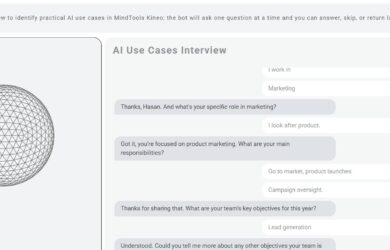AI is rapidly transforming the learning and development (L&D) landscape. It promises tailored learning journeys, automated content creation, and faster development processes. But as Ross Dickie, Learning Experience Consultant at Mindtools, recently highlighted in Consultancy UK, technology on its own won’t fix broken learning strategies.
The real challenge? Behavioural data
Too often, L&D teams base decisions on incomplete or biased information. This ranges from self-assessments colored by overconfidence, to 360 feedback swayed by personal relationships, to engagement surveys influenced by mood or wording. These tools offer useful signals, but they are blunt instruments when relied on as the sole source of truth. If the baseline is flawed, AI will only accelerate the wrong solution.
AI isn’t the bottleneck – problem definition is
The article makes a clear distinction: content has never been L&D’s biggest obstacle. The real work lies in diagnosing the right problem, designing interventions that shift behaviour, and measuring their impact.
AI can save time, streamline processes, and even surface useful insights from data. But without robust behavioural baselines, it risks bypassing critical analysis and embedding ineffective learning at scale.
What good looks like
Building a stronger foundation means focusing on what people actually do, not just how they feel about their skills. That might involve:
• Using validated behavioural surveys grounded in academic research
• Balancing qualitative insights (like focus groups) with hard business metrics
• Establishing control groups to truly understand programme impact
• Linking learning activity to tangible outcomes such as performance data and customer feedback.
This richer, evidence-based approach allows L&D teams to target interventions more precisely – and to use AI as an enabler, rather than a shortcut to nowhere.
AI + expertise = impact
As Ross notes, AI works best when layered over strong professional judgment. It can strip out admin, help process large data sets, and speed up prototyping – but it cannot replace the experience and credibility of skilled learning professionals. Without that expertise, AI risks producing learning that looks sophisticated but fails to drive meaningful change.
You can read the full article on Consultancy UK.
At Mindtools, we help organizations cut through the noise. By combining robust behavioural data, proven measurement frameworks and innovative tools like AI, we ensure that manager development initiatives are rooted in reality – and deliver results.
If you’d like to explore how Mindtools can help your organization build stronger managers and leaders, our experts are always happy to have a no-obligation conversation.




